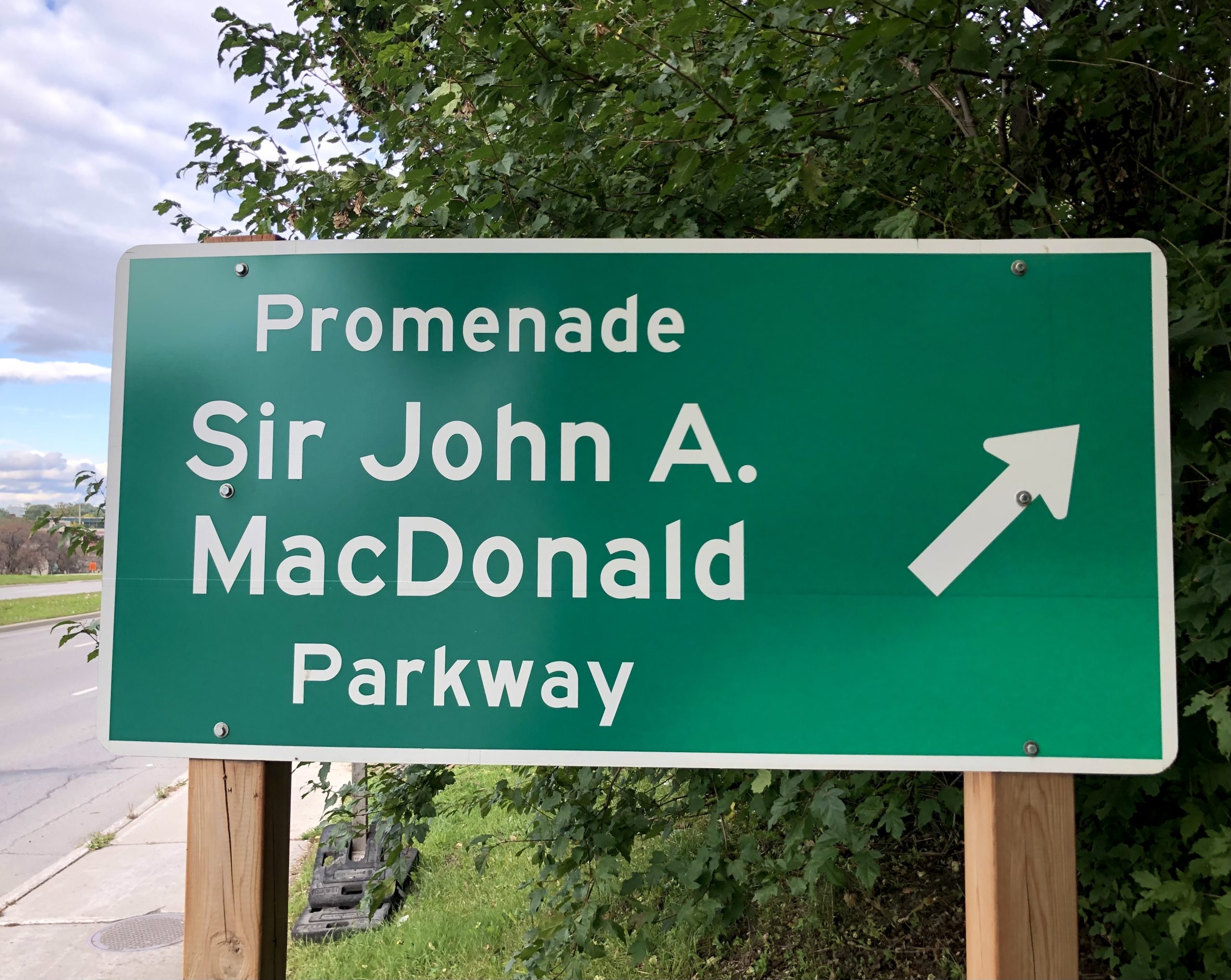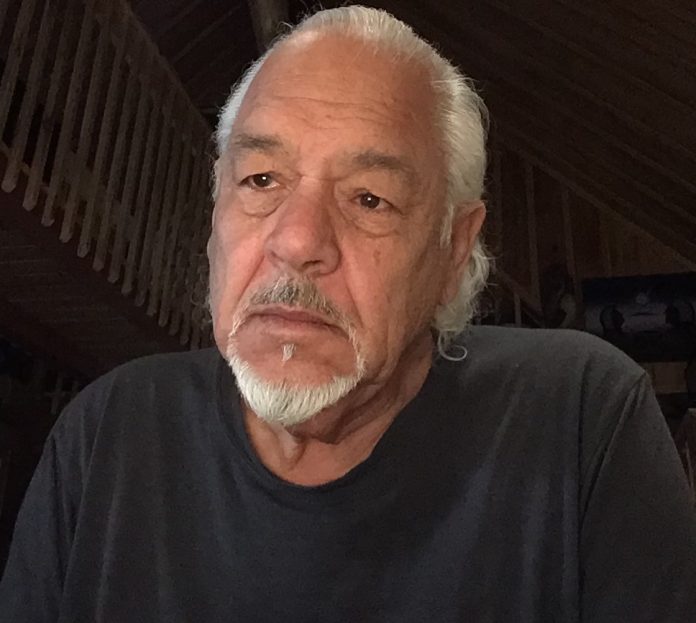Ottawa’s poet laureate has made a pledge: Albert Dumont will walk on the Sir John A. Macdonald Parkway every Sept. 30, the National Day for Truth and Reconciliation, until the roadway’s name is changed.
“It’s about getting John A. Macdona ld’s name off the parkway. He’s guilty of genocide,” said Dumont.
“John A. Macdonald was a monster. What else could I say? He was truly a monster,” he added.
Macdonald, Canada’s first prime minister, is widely considered one of the primary architects of the residential school system. The first residential schools opened in the 1830s, with the last one closing in the mid-1990s, according to the National Centre for Truth and Reconciliation (NCTR).
“For a period of more than 150 years, First Nations, Inuit and Métis Nation children were taken from their families and communities to attend schools which were often located far from their homes. More than 150,000 children attended Indian Residential Schools. Many never returned,” the NCTR website states.
In 2021, the Government of Canada designated Sept. 30 as the National Day for Truth and Reconciliation to honour “the children who never returned home and Survivors of residential schools, as well as their families and communities.”

Kitchissippi Times spoke with Dumont in the days leading up to the Sept. 30 walk.
“There’s going to be lots of people involved. I’m really, really thrilled at the amount of people that are saying they are going to walk with us,” he said. “We’re calling the walk, ‘Acknowledging the Truth Walk,’ and on September 30th, we’re going to call the parkway ‘Every Child Matters Parkway.’”
The Friday morning walk was set to depart around 8:30 a.m. from the Canadian War Museum, with participants walking along the parkway to Parkdale Avenue and back to the museum. Dumont expected a few hundred participants, including residential school survivors, locals, politicians and faith leaders, among others.
Born in traditional Algonquin Territory (Kitigan Zibi), Dumont is a spiritual advisor, human rights activist and Ottawa’s poet laureate. He is also a co-author on the “Rename the Parkway” petition that has garnered thousands of signatures over the last few years.

“Macdonald’s name is everywhere else,” Dumont said. “I mean, it’s on bridges, it’s on schools, it’s at airports. Does it have to be on that parkway? It’s everywhere else. All I’m asking is that they get it off the parkway.”
“It should be called the ‘Kichi Zibi Parkway’ because the parkway runs parallel to the Kichi Zibi.”
Last October, the Sir John A. Macdonald (SJAM) Winter Trail was renamed to Kichi Sibi Winter Trail through a consultation of community partners such as the winter trail’s groomer team and Dovercourt Recreation, the city, the National Capital Commission (NCC) and Indigenous community leaders, including Dumont.
“Wherever the Ottawa River watershed is, that was our territory—undisputed territory—everybody acknowledged that in the past,” Dumont told Kitchissippi Times in an October 2021 interview. “And so, it is an appropriate name for sure. It’s a good name to call that trail the Kichi Sibi Trail because it runs along the Kichi Sibi, the Great River of the Algonquin People.”
Earlier that year, the former Prince of Wales Bridge in Kitchissippi was also renamed. In July 2021, Ottawa city council voted in support of renaming the interprovincial crossing to Chief William Commanda Bridge, after the former Kitigan Zibi Anishinabeg First Nation chief and Algonquin elder.
Dumont said that he may organize more walks along the parkway, even several a year, depending on how the situation develops with the NCC and the renaming.
Kitchissippi Times requested a comment from the NCC on the renaming of the parkway — whether a renaming is being considered and, if so, what the status was currently.
“Following the 1st National Day for Truth and Reconciliation in Fall 2021, the NCC committed to modernize its Toponymy Policy. The new toponymy policy was presented to the Board of Directors in April 2022. At the time, the NCC confirmed that the Sir John A. Macdonald Parkway name would be the first asset considered under the new policy,” the NCC wrote in a statement to Kitchissippi Times Sept. 27.
“In August 2022, a new Advisory Committee on Toponymy (ACT) membership was finalized, and their first meeting was held on September 13, 2022,” the statement continued. “The Advisory committee recommended that the NCC further develop its analysis, alongside engagement with the Algonquin Nation and other stakeholders. This will contribute to a better understanding of the local history and topography, as well as the cultural significance of the location to the Algonquin people.”
The NCC confirmed that its public engagement strategy will be “further refined” and shared with the committee for input over the next weeks. The organization’s engagement activities will “seek to inform and engage the public and NCC stakeholders of the NCC’s review of the parkway name.”
The NCC expects to provide its recommendations to the board of directors in January 2023.
Dumont is encouraging the public to get involved with the process and engage with the NCC on the matter.
“I’d like for people to write to the NCC and tell them they object to Macdonald’s name being [there],” he said.
And Dumont has a team working with him on his reconciliation efforts locally.
Kitchissippi resident Pamela Naymark and a group of five or six volunteers help further those efforts through Orange Shirt Day sales and by organizing local events, like the Sept. 30 walk, hoping to advance community change.
“It’s a small team of volunteers that are supporting all these grassroots, community-based reconciliation activities to advance Indigenous reconciliation,” Naymark said.
“Our whole message is positive; it’s a positive way to move forward, honouring both Indigenous and non-Indigenous peoples, recognizing we’re both here, nobody should be blamed or shamed for the horrors of the residential schools and the story of Canada,” Naymark added. “But what we can do is make a better Canada,” she added.
Naymark said their volunteer team encourages Ottawa residents to get involved however they can.
“We want people to think about locally what they can do, and that hopefully is the big takeaway. You’re not powerless, you have different ways you can contribute,” she said.
For more information, visit healingbeginsnow.ca
